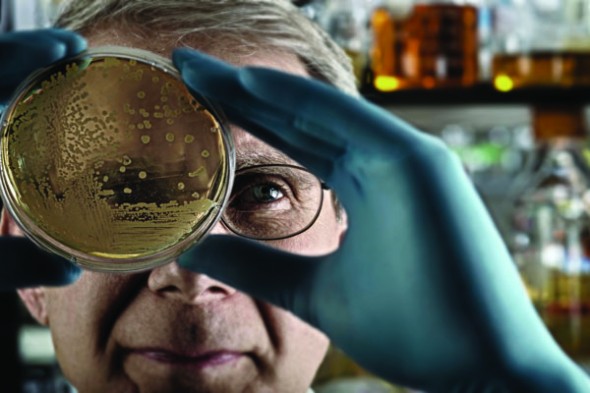New treatment for resistant bacterial infections
(Northeastern University, November 13, 2013)
 Researchers from Northeastern University present a novel approach to treat and eliminate methicillin resistant staphylococcus aureus, or MRSA, a potent bacterium that infects 1 million Americans each year. The new work is on a specialized class of cells produced by all pathogens called persisters. These cells enter a dormant state that makes them impervious to traditional antibiotics. Since these drugs work by targeting active cellular functions, they are useless against dormant persisters, which aren’t active at all. For this reason, persisters are critical to the success of chronic infections and biofilms. In their new work, the team found that a drug called ADEP effectively wakes up the dormant cells and then initiates a self-destruct mechanism. The approach completely eradicated MRSA cells in a variety of laboratory experiments and, importantly, in a mouse model of chronic MRSA infection.
Researchers from Northeastern University present a novel approach to treat and eliminate methicillin resistant staphylococcus aureus, or MRSA, a potent bacterium that infects 1 million Americans each year. The new work is on a specialized class of cells produced by all pathogens called persisters. These cells enter a dormant state that makes them impervious to traditional antibiotics. Since these drugs work by targeting active cellular functions, they are useless against dormant persisters, which aren’t active at all. For this reason, persisters are critical to the success of chronic infections and biofilms. In their new work, the team found that a drug called ADEP effectively wakes up the dormant cells and then initiates a self-destruct mechanism. The approach completely eradicated MRSA cells in a variety of laboratory experiments and, importantly, in a mouse model of chronic MRSA infection.